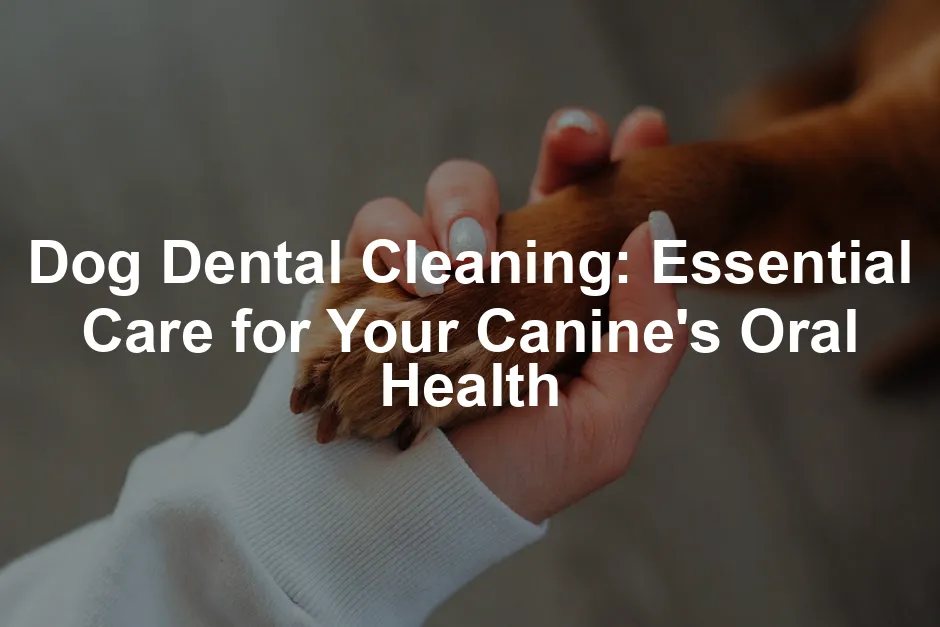Introduction
Dental health is crucial for your dog’s overall well-being. Regular dental cleaning can prevent serious health issues related to poor oral hygiene. This article explores the importance of dog dental cleaning, how it’s performed, and how you can maintain your dog’s oral health at home.
Summary and Overview
Dog dental cleaning is not just about fresh breath; it plays a vital role in preventing periodontal disease, tooth loss, and even systemic health issues. Many dog owners underestimate the importance of regular dental care, leading to significant health problems. This guide will provide insights into the procedures involved in dog dental cleaning, signs that your dog may need a cleaning, best practices for home care, and how to choose the right veterinary services. Understanding these aspects can help you keep your furry friend healthy and happy.
Speaking of keeping your dog healthy, have you thought about incorporating a PetSafe Healthy Mouth Dog Water Additive? This magical potion helps reduce plaque and tartar while freshening your dog’s breath. It’s like a spa day, but in their water bowl!
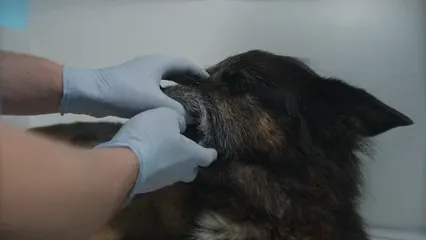
Importance of Dog Dental Cleaning
Understanding Dental Disease in Dogs
Dental disease refers to a range of oral health issues affecting dogs. It’s surprisingly common, with many dogs facing some form of dental trouble. Common problems include gingivitis and periodontal disease. Gingivitis causes inflammation of the gums, while periodontal disease can destroy surrounding tissues.
Statistics reveal that by age three, over 80% of dogs show signs of dental disease. Small breed dogs often face higher risks due to overcrowded teeth. This highlights the importance of proactive dental care. Regular cleanings can significantly reduce these risks and improve your dog’s quality of life.
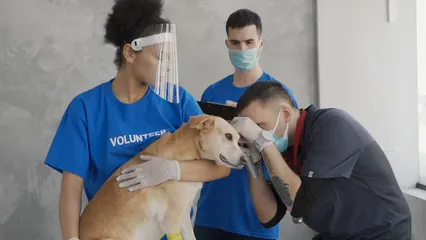
Why Regular Dental Cleaning is Essential
Dental health directly impacts overall health. Bacteria from dental infections can enter the bloodstream, harming vital organs like the heart and kidneys. Regular cleaning helps prevent these systemic diseases.
Professional cleanings are crucial. They remove tartar and plaque buildup that brushing alone can’t eliminate. At-home care is beneficial, but it doesn’t replace the need for professional services. Aim for annual cleanings, or more frequently for dogs prone to dental issues.
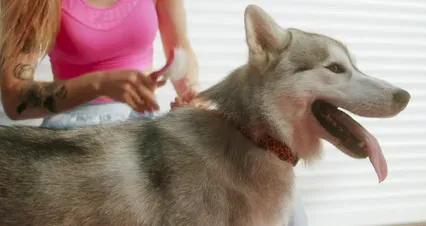
The Role of Dental Products in Care
To complement your dog’s dental routine, consider using Vet’s Best Enzymatic Dog Toothpaste. This toothpaste is specially formulated to reduce plaque and tartar while freshening breath. Your pup will thank you for the tasty treat that also protects their pearly whites!
Why Regular Dental Cleaning is Essential
Maintaining your dog’s dental health is vital for their overall well-being. Did you know that poor dental hygiene can lead to systemic diseases? Bacteria from dental infections can enter the bloodstream, impacting organs like the heart and kidneys.
Regular dental cleaning helps prevent these serious health issues. Professional cleanings are a must. They remove plaque and tartar that brushing at home simply can’t reach. While at-home care is beneficial, it shouldn’t replace professional services. Aim to schedule cleanings annually or more frequently if your dog is prone to dental problems.
Investing in your dog’s dental health today can lead to a longer, healthier life.
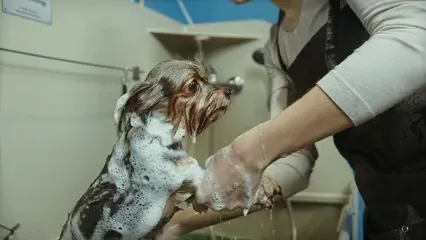
Understanding the importance of dog dental cleaning is essential for your pet’s health.
What to Expect During a Dog Dental Cleaning
Pre-Cleaning Assessment
Before the cleaning, your vet will conduct a thorough pre-anesthetic evaluation. This often includes blood tests to check organ function. Ensuring your dog is healthy enough for anesthesia is crucial.
Anesthesia is necessary for a safe cleaning process. It allows the vet to thoroughly examine your dog’s mouth, including taking dental X-rays if needed. This step is essential for identifying hidden issues below the gum line.
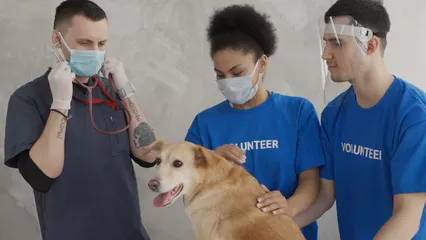
The Dental Cleaning Procedure
During the dental cleaning, your dog will be under anesthesia for safety. The process begins with a thorough examination of the mouth and teeth. Following this, the veterinarian will use ultrasonic scalers to remove plaque and tartar from above and below the gum line.
After scaling, polishing is performed to smooth the teeth surface. This step helps reduce future plaque build-up. If necessary, your vet may also discuss possible extractions if any teeth are severely affected.
A comprehensive cleaning not only freshens breath but also protects your dog from future dental diseases. Understanding this process can ease your mind about your pet’s dental health.
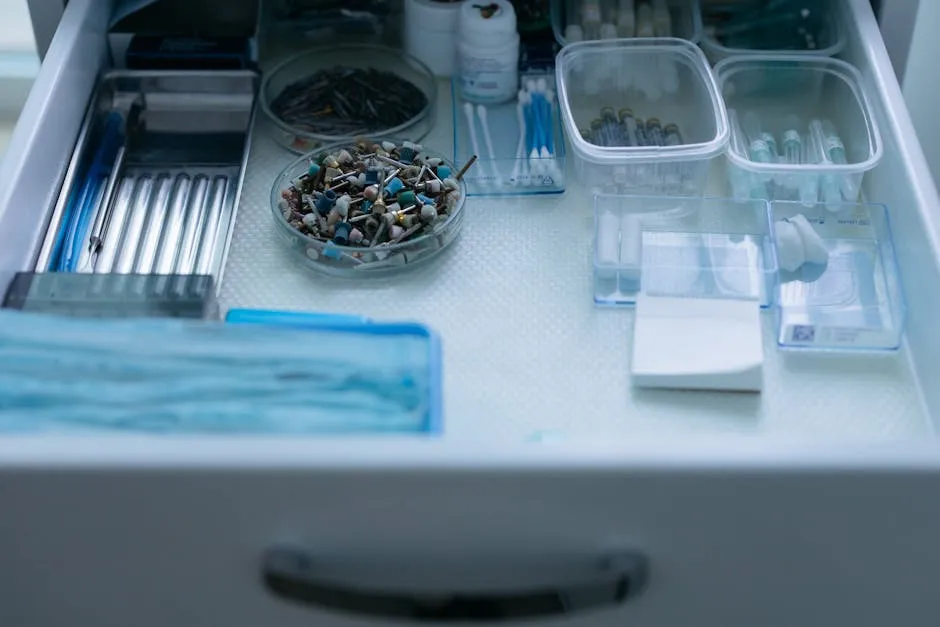
Recovery and Aftercare
After your dog’s dental cleaning, expect some changes. Your furry friend may feel lethargic for a few hours. This is normal after anesthesia. Many dogs also need to eat soft food for a day or two. This gentle diet helps them adjust post-procedure.
Keep an eye out for any unusual signs. Watch for excessive drooling or difficulty eating. If your dog seems uncomfortable or in pain, reach out to your veterinarian. Monitoring their behavior closely ensures any concerns are addressed quickly.
Follow-up care is essential. Schedule the next dental cleaning based on your vet’s recommendation. Generally, annual cleanings are advised. However, some dogs may need cleanings more frequently, especially if they are prone to dental issues.
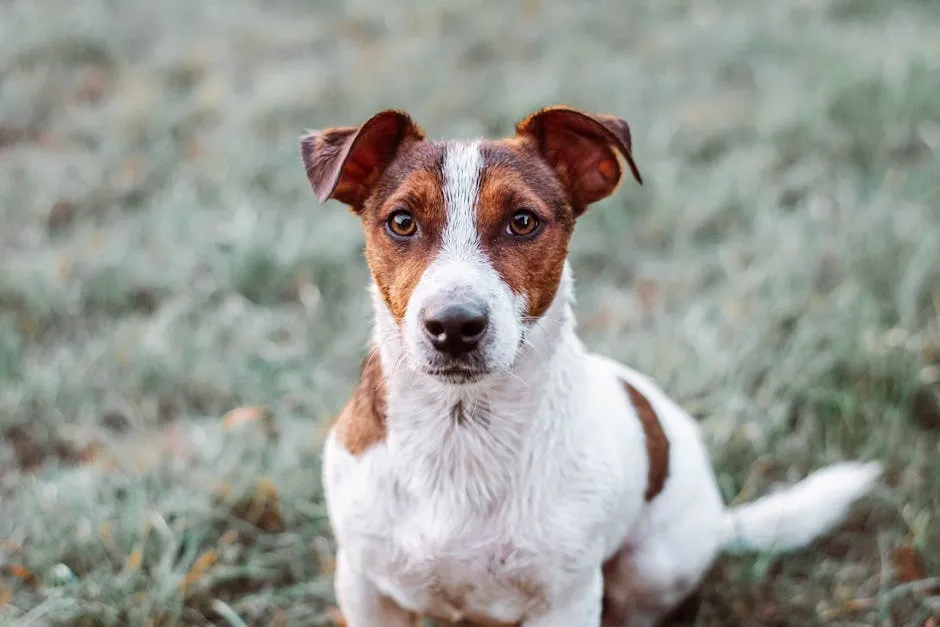
At-Home Dental Care Practices
Daily Dental Hygiene: Brushing Your Dog’s Teeth
Brushing your dog’s teeth is crucial. Aim for daily brushing to keep plaque at bay. Use a soft-bristled toothbrush designed for pets. It’s important to choose dog-specific toothpaste; human toothpaste can be harmful.
Start slowly. Let your dog taste the toothpaste first. Gradually introduce the toothbrush, allowing them to get used to it. Make it a positive experience by offering praise and treats. This way, your dog will associate brushing with something enjoyable.
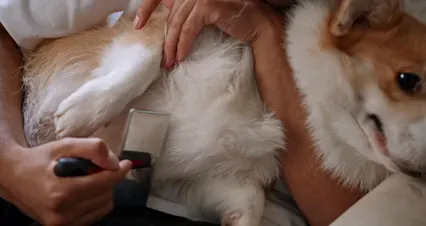
Alternative Dental Care Products
Consider incorporating dental chews and water additives into your dog’s routine. These products can help reduce plaque and freshen breath. Look for items approved by the Veterinary Oral Health Council (VOHC) for maximum effectiveness. For example, Arm & Hammer Dog Dental Chews are an excellent option to help keep those canine canines sparkling clean!
Dental toys can also contribute to oral health. They help clean teeth while your dog plays. Just ensure the toys are safe and suitable for your dog’s size. Regular use of these alternatives can enhance your dog’s dental hygiene and complement your brushing routine.
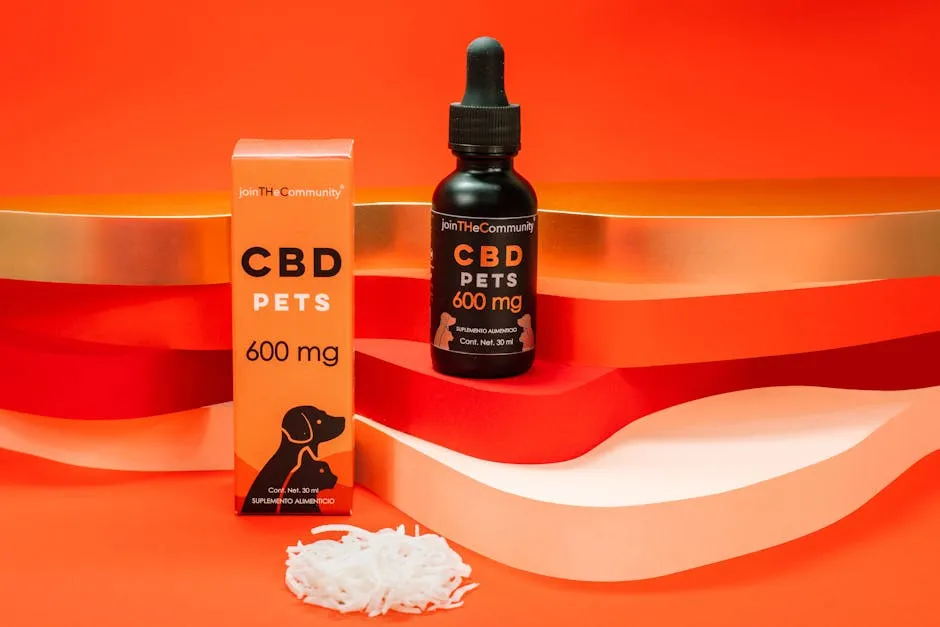
Signs Your Dog Needs a Dental Cleaning
Is your dog’s breath less than pleasant? Bad breath may be a sign of dental issues. Other common indicators include bleeding gums and excessive drooling. If you notice these symptoms, it’s time for action. Early detection is key to preventing serious problems.
Regular dental check-ups can catch issues before they escalate. You can perform a simple at-home dental check-up. Gently lift your dog’s lips and inspect their teeth and gums. Look for redness, swelling, and any unusual deposits. This quick check can save your pet from pain and discomfort down the line.
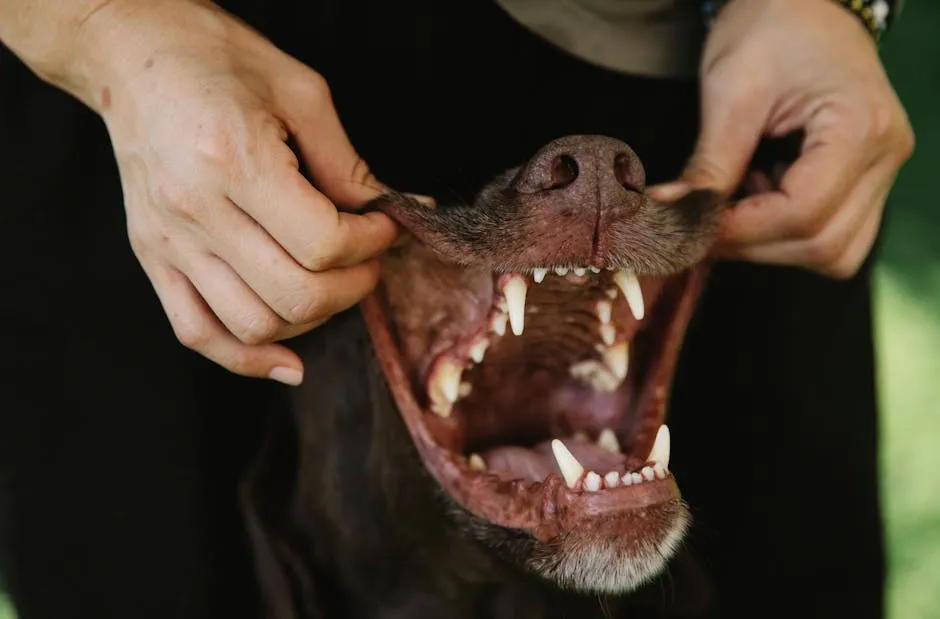
Cost of Dog Dental Cleaning
Breakdown of Costs
Wondering about the financial aspect of dog dental cleaning? The average cost varies widely. In general, a routine dental cleaning can range from $300 to $700. Factors like location and veterinarian expertise influence pricing. Urban areas often have higher costs due to demand.
If your dog needs additional procedures, such as extractions, costs can increase significantly. Dental insurance may help cover some expenses. Always check your policy for specifics regarding dental care coverage.
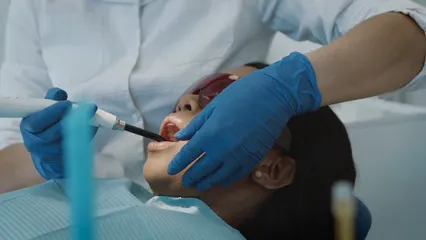
Tips for Reducing Dental Care Costs
Keeping up with regular check-ups can save you money in the long run. Preventive care helps avoid severe dental issues that lead to expensive treatments. Plus, establishing a home care routine can also lower costs.
Consider using dental chews and toys to support oral health. These products can help remove plaque during playtime. Additionally, explore pet insurance options that cover dental care. This can provide peace of mind for unexpected expenses.
By being proactive, you can keep your dog’s teeth healthy without breaking the bank. Regular care and early detection make all the difference. Don’t forget to try Doggie Dental Chews by Greenies. They’re not just treats; they’re also a tasty way to keep your dog’s teeth clean!

Conclusion
Regular dental cleaning is essential for your dog’s health. By understanding the importance of dental care, you can prevent serious health issues. What to expect during cleaning procedures is vital knowledge for every pet owner. Implementing at-home care can further enhance your dog’s dental hygiene.
Make it a priority to schedule regular vet visits. Incorporate dental care into your dog’s routine for a happier, healthier life. Your furry friend deserves the best care possible, and dental health is a significant part of that. Consider getting a PetFusion Better Pet Food Storage Container to keep your dog’s food fresh and tasty, because who wants stale kibble?
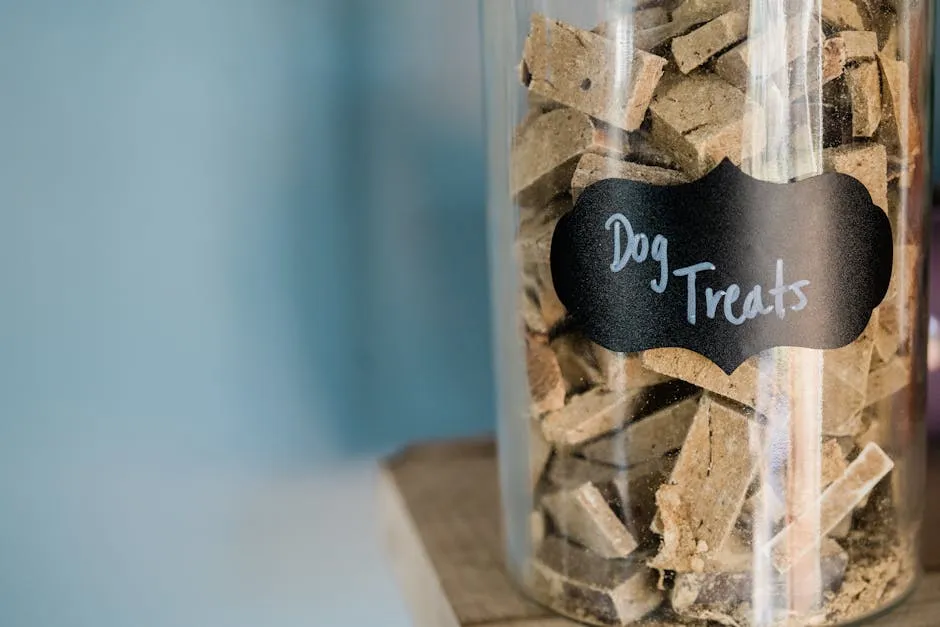
FAQs
How often should my dog get a dental cleaning?
The frequency of cleanings depends on your dog’s age, breed, and lifestyle. Small dogs may require dental cleanings more frequently than larger breeds. Generally, aim for once a year or more if dental issues are present.
What are the signs that my dog needs a dental cleaning?
Look out for bad breath, swollen gums, and excessive drooling. These are common indicators of dental problems. If your dog shows discomfort when eating, it’s time for a dental check.
Can I use human toothpaste for my dog’s teeth?
No, human toothpaste can be harmful to dogs. It contains ingredients that are toxic to pets. Always opt for pet-safe toothpaste made specifically for dogs.
What happens if I don’t regularly clean my dog’s teeth?
Neglecting dental care can lead to serious consequences. Risks include periodontal disease, tooth loss, and infections that may affect other organs. Regular cleanings help avoid these severe health issues.
Are there any at-home methods to keep my dog’s teeth clean?
Yes! Daily brushing, dental chews, and water additives can significantly improve dental health. Incorporate these practices to enhance your dog’s at-home dental care routine.
What should I expect during my dog’s dental cleaning appointment?
During the appointment, your dog will undergo a pre-cleaning assessment. Anesthesia is typically used to ensure safety during the procedure. Expect thorough cleaning, polishing, and possibly extractions if necessary.
Do all dogs need dental cleanings?
Yes, all dogs benefit from dental cleanings, regardless of age or breed. Certain breeds may require more frequent cleanings due to genetic predispositions. Regular dental care is key to maintaining your dog’s overall health.
Please let us know what you think about our content by leaving a comment down below!
Thank you for reading till here 🙂
All images from Pexels

